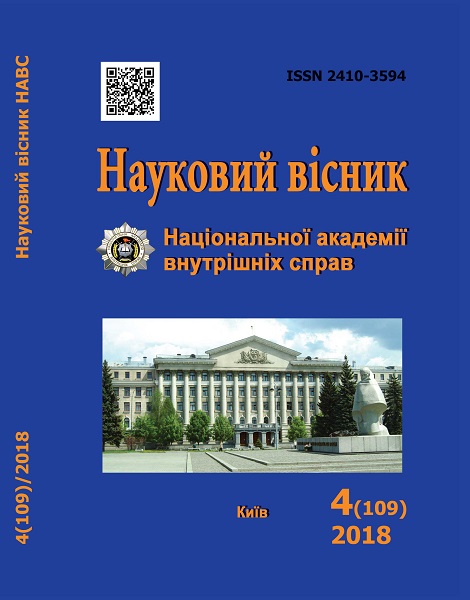Criminal Liability for the Misappropriation of a Passport in the Context of International Experience
Abstract
The world community suffers from criminal acts involving the use of other personal documents. In view of the significant threat to international security, a number of measures have been developed to prevent this group of crimes. Among such measures, the world community offers, in particular: 1) the provision of criminal protection, by consolidating the crime in the criminal law; 2) application of scientific and technical achievements in the improvement of personal documents; 3) the introduction of modern technologies in order to prevent the use of a personal document by a third persons; 3) international cooperation. The proposed article analyzed the criminal legislation of foreign states regarding the establishment of criminal liability for the misappropriation of a passport or other personal, important document. On the basis of the analysis, it was noted that all investigated states, in particular: Georgia, Germany, Sweden, the Russian Federation, the Republic of Belarus, the Republic of Moldova, the Republic of Azerbaijan, the Republic of Armenia, the Republic of Kazakhstan, the Kyrgyz Republic, the Republic of Tajikistan, Turkmenistan, the Republic of Uzbekistan, Estonia, the United States, and the United Kingdom, the crime of illegal acts with a personal, important document. The author, having reviewed the sanctions of the articles, found that the most common form of punishment for illegal acts with personal, important documents is a fine, public works and deprivation of liberty, which is used, usually in the presence of aggravating circumstances or for crimes with qualifying attributes. The author was proposed to make changes to the disposition of the article, by establishing liability not only for the misappropriation of a passport or other personal document, but also for the use of someone elseʼs official personal document. In addition, innovations also apply to sanctions, which are proposed to provide for alternative types of punishment, including the form of public works.
Downloads
Abstract views: 64 PDF Downloads: 1252
- Authors reserve the right to authorship of their own work and transfer to the magazine the right of the first publication of this work under the terms of the Creative Commons Attribution License, which allows other persons to freely distribute published work with mandatory reference to authors of the original work and the first publication of an article in this magazine.
- Authors have the right to enter into separate additional agreements on non-exclusive dissemination of the work in the form in which it was published in the journal (for example, to post an article in the institution's repository or to publish as part of a monograph), provided that the link to the first publication of the work in this journal is maintained.
- The journal's policy allows and encourages the posting of articles by authors on the Internet (for example, in electronic storehouses of institutions or on personal websites), both before the submission of this manuscript to the editorial office and during its editorial processing, as this contributes to the creation of a productive scientific discussion and positively affects the efficiency and dynamics of citing the published work.




